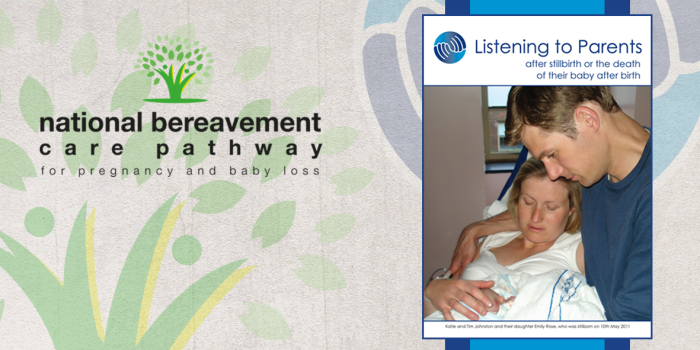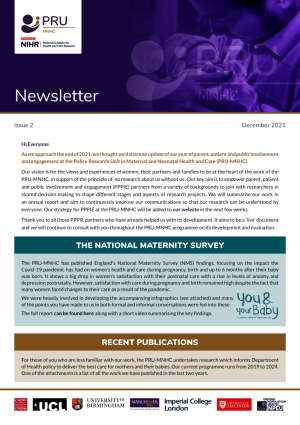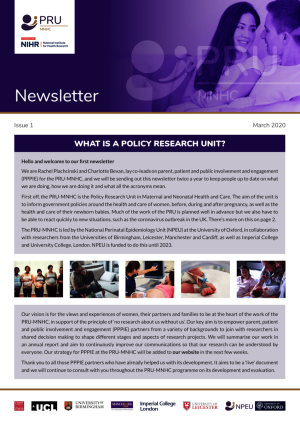Lessons for supporting parents through baby loss

Published on Monday, 16 May 2022
By Charlotte Bevan, Lay Co-lead for Parent, Patient and Public Involvement and Engagement
Some research at the Policy Research Unit has an impressive shelf life, particularly when it comes to hearing from women and families whose voices may at worst be silenced and at best be ignored given the rare and tragic nature of their experiences.
The National Institute of Health and Care Research (NIHR) recently put out an alert about a new piece of research which drew on relatively old data. The data in question came from the Listening to Parents study, the first national survey ever undertaken in the UK of parents whose baby had died before, during or shortly after birth. These difficult and challenging experiences were collected in 2012 and 2013 from parents who were recently bereaved, with the support of baby charities Sands and Bliss.
The Listening to Parents report was published in 2014. Since then it has had significant impact with findings quoted on virtually every page of the National Bereavement Care Pathway (NBCP), a series of good practice guidelines to support parents who've experienced pregnancy or baby loss, including stillbirth or the death of their child shortly after birth. The NBCP has been widely adopted across Scotland and England and in parts of Wales and Northern Ireland.
But there was still vitally important information from the survey to be explored in more detail, about the experiences of women and families whose chance to parent their baby was cut short by their child's all too brief life. Last year, Maggie Redshaw, with the support of Jane Henderson and myself as co-authors, set out to look specifically at the needs of these parents.
In the data, we found heart-breaking narratives with bereaved parents looking back and describing how much they would have liked to have been physically close to their baby while he or she was still alive (even if they were in a special baby care unit and contact was limited). As one mother said:
It would have been nice if I was closer [to the Neonatal Intensive Care Unit]. I was recovering from the [Caesarian] section and 3 hours and a long corridor away from him. It took 5 mins to get to him but [it was] the longest 5 mins of my life
Mothers described their sadness at missed opportunities to parent their child in some small way; to have known what was happening in those crucial minutes and hours around life and death, and what their choices might have been.
...will never forget that I never got to feed or dress my son before he died! … When we were told we had to take life support away no one explained what was going to happen. We sent our parents away, they should have been involved we didn't realise they could be part of it!
Entitled 'This time we will never get back', the paper's messages around what parents need in that brief window between the life and death of their child, are already having an impact. They will be incorporated into an updated version of the National Bereavement Care Pathway out this year.


